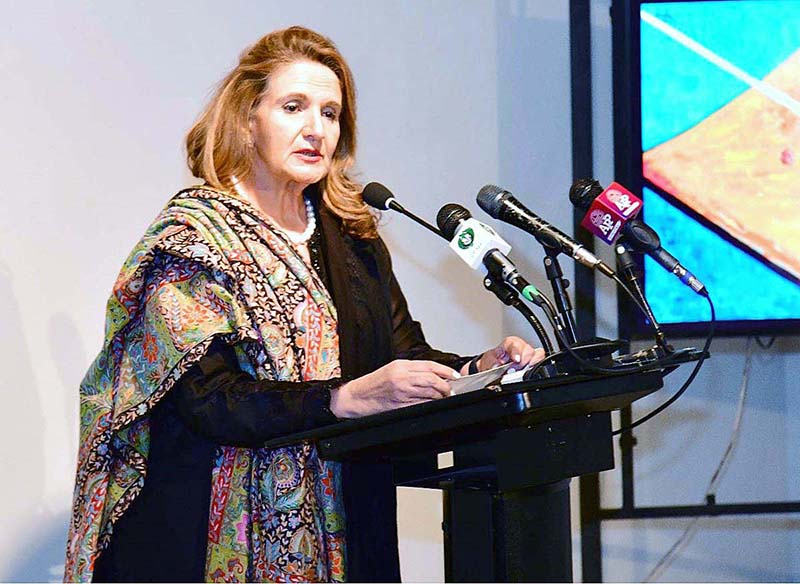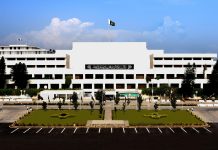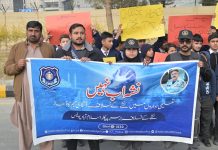By Hina Kiyani
ISLAMABAD: First Lady Begum Samina Alvi on Thursday called for sustained measures, global contributions and support to overcome the issue of mental health and well-being of people in the conflict zones. The first lady, in her video message for the 3rd Summit of the First Ladies and Gentlemen in Kyiv, Ukraine, urged the need to make efforts to resolve ongoing conflicts in the world.
She said that promoting peace in the world and working together was essential for the mental health, emotional well-being, and peaceful future of the succeeding generations. The theme of this year’s Summit, which was initiated by Ukraine’s First Lady Olena Zelenska, was “Mental Health: Fragility and Resilience of The Future”.
President Volodymyr Zelensky also delivered a speech at the Summit. The Summit also featured messages from the First Ladies and Gentlemen of Japan, Turkiye, Albania, Germany, Armenia, Macedonia, Poland, Spain, and Sweden among others. In her message for the Summit, Begum Samina Alvi expressed concern about the mental health and well-being of people in conflict zones, besides conveying her sympathies to the families in Ukraine who had to face physical, emotional and mental stresses due to war.
“We in Pakistan can feel their pain and empathize with the people of Ukraine. We feel that it is humanity that suffers during crises and conflicts”, Begum Samina Alvi said. She highlighted that Pakistan’s own experience of hosting millions of Afghan refugees for over four decades and its long battle against terrorism had taught Pakistan that conflict and war severely affected the mental health of people.
First Lady Samina Alvi highlighted that the brutalities against the Muslims of the Indian Illegally Occupied Jammu and Kashmir (IIOJK) by India for over seven decades had badly impacted the mental health of Kashmiris.
She referred to a study by Doctors Without Borders and the University of Kashmir which disclosed that nearly 1.8 million Kashmiri adults, almost 45 per cent of the region’s adult population, found themselves grappling with varying degrees of mental distress, including anxiety, depression and post-traumatic disorder. “These troubling figures underscore the profound impact of continuous military actions, armed confrontations, economic shutdowns and the imposition of curfews by the Indian government”, she remarked. She regretted that mental health was often neglected and misunderstood in relation to its adverse impacts on people, particularly in conflict zones, as it did not have a visible manifestation of injury. She also made reference to World Health Organization’s findings that the prevalence of mental health problems more than doubled in a humanitarian crisis. She stated that the prolonged duration of the war in any conflict zone increased the need for quality mental health facilities and counselling.
Begum Alvi emphasised that bringing people in conflict zones back to normal life was possible, however, it required sustained efforts and resolving conflicts in the world. She said that Pakistan desired to see a peaceful settlement of conflicts around the world.






